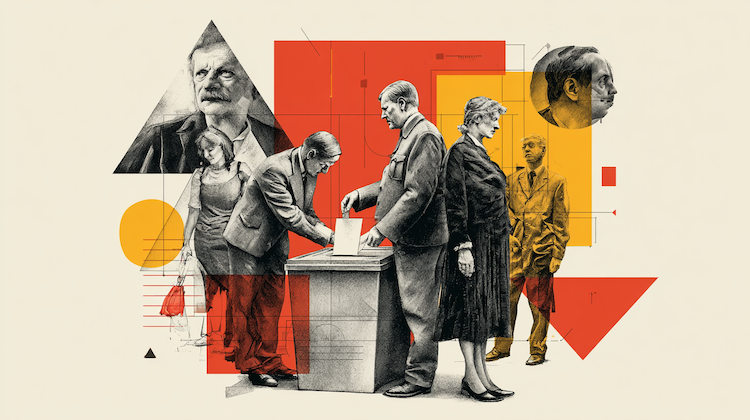Welcome to DU!
The truly grassroots left-of-center political community where regular people, not algorithms, drive the discussions and set the standards.
Join the community:
Create a free account
Support DU (and get rid of ads!):
Become a Star Member
Latest Breaking News
Editorials & Other Articles
General Discussion
The DU Lounge
All Forums
Issue Forums
Culture Forums
Alliance Forums
Region Forums
Support Forums
Help & Search
General Discussion
Related: Editorials & Other Articles, Issue Forums, Alliance Forums, Region ForumsBallots or Bans: How Should Democracies Respond to Extremists?

As extremists exploit democracy’s freedoms, should constitutions strike back—or always leave judgment to the ballot box?
https://www.socialeurope.eu/ballots-or-bans-how-should-democracies-respond-to-extremists

The question of whether, and how, democracies should defend themselves against subversion has again become a hot-button issue. In Germany, a growing chorus is demanding legal proceedings that might result in a ban on the far-right Alternative für Deutschland (AfD). Already, the Federal Office for the Protection of the Constitution – a domestic intelligence agency – has labeled the party an extremist organization, which implies that it is unconstitutional. But in Romania’s recent presidential election, voters rejected a far-right nationalist candidate, suggesting that threats to democracy can be thwarted at the ballot box. And a similar debate preceded the US election last year, when the state of Colorado led an effort to keep Donald Trump off the ballot. Should a candidate be taken out of the running for breaking the law, or should the electorate always have the final word?
Posing the question this way misses what is truly at stake: the future of constitutional democracy, which is not the same as a people’s democracy. A constitution sets forth the normative aspirations of the political system it creates, including fundamental civil and political rights. It determines the scope and limits of power that different branches of government may exercise, including the checks and balances between them. In contrast, a people’s democracy dispenses with legal constraints, which are seen as obstacles to realizing the true will of the people. Mao Zedong is perhaps the best-known leader of a people’s democracy. He ruled by fiat, dismantling the legal system and branding landlords, the rich, and various bad influences (including lawyers) as enemies of the people. All were dealt with severely.
Whether this truly reflected the will of the people is anyone’s guess, because Mao simply declared himself to be the people’s only voice. He also did away with elections; but, of course, when the people are terrorized into submission, they will produce whatever outcome the leader wants, rendering elections meaningless. Adolf Hitler is another example of a leader who claimed to embody the true will of the people. He, too, determined who the enemies of the people were (communists, dissidents, Roma, Jews) and had them purged, imprisoned, and killed by the millions. But unlike Mao, he did not entirely dismantle the legal system. Beneath the Nazi reign of terror was a legal system that had been stripped off its normative foundations but still functioned like a well-oiled machine in ruling on civil, administrative, and even criminal matters.
Nazi Germany, wrote Ernst Fraenkel, was a “dual state”: it administered the lives of ordinary people through law, but “the Leader” ruled without legal restraint. While Mao came to power by way of revolution, Hitler’s initial attempt to seize power by force led to his imprisonment. But Hitler learned from his mistake and devised plans to gain power by democratic means and then dismantle the system from within. He turned the National Socialist German Workers’ Party (NSDAP) into a movement that systematically discredited the institutions of the Weimar Republic and made the case for his rise. The party’s name was well chosen. By including “socialist” and “worker,” it seemed to offer an alternative to the existing pro-workers parties, even though it was actually a radical nationalist organization bent on freeing Germany from the grip of its internal and external enemies (as determined by the infallible Leader).
snip
1 replies
 = new reply since forum marked as read
Highlight:
NoneDon't highlight anything
5 newestHighlight 5 most recent replies
= new reply since forum marked as read
Highlight:
NoneDon't highlight anything
5 newestHighlight 5 most recent replies
Ballots or Bans: How Should Democracies Respond to Extremists? (Original Post)
Celerity
Jun 16
OP
bucolic_frolic
(51,514 posts)1. Boycotts
As the Army marches, so do the factory workers and laborers.